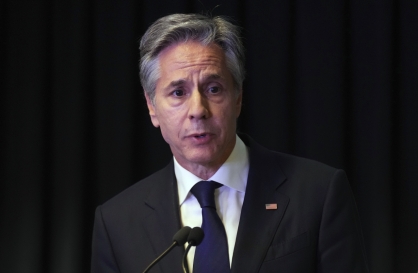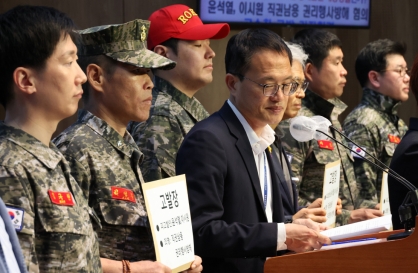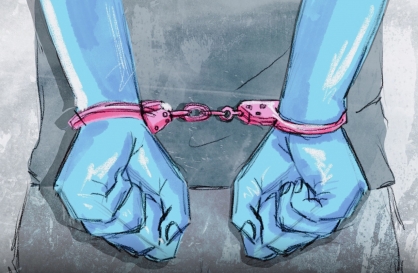On Sept. 2, during the summit between South Korean President Park Geun-hye and Chinese counterpart Xi Jinping, the two were seen to reaffirm their relations, with Korea’s media outlets quoting Xi as touting the two countries’ ties as being the “best ever.”
The unprecedented description of their partnership was considered momentous, as Seoul sought to bolster political cooperation with its biggest trading partner at the risk of irking Washington.
It was only a few hours later that it was revealed the “best ever” remarks were a mistranslation. Xi’s comments were simultaneously interpreted at the venue and a mistranslation had occurred when Cheong Wa Dae translated the original script for media assistance.
The incident resulted in numerous false reports, inevitable ridicule and falling-out between the presidential office and the accompanying media.
The case also highlighted the importance of good translation for a successful diplomatic stratagem.
Behind the lavish summits between South Korean leaders and their foreign counterparts, there are people who live on their nerves to best deliver a clear message beyond the language barrier and ultimately to enhance the national prestige, using a highly skilled manner and a sense of wit.
Knowing the language well is hardly enough for the job. Interpreters face the pressure of bringing out the subtle nuances of the speaker’s words, particularly the messages that are heavily doused in one’s native culture and language.
In an interview with a vernacular daily years ago, Park Jin, former lawmaker and diplomat, said he had trouble interpreting the meaning of a gift presented to then U.S. President Bill Clinton when he was visiting Cheong Wa Dae in July 1993, for a summit with South Korean President Kim Young-sam. Park was a press secretary at the time.
As Kim gave a piece of his calligraphy with four Chinese letters ― “Dae-do-moo-moon” (大道無門) ― Park, in a direct translation, told Clinton that the work said “A high street has no main gate.” But as the former U.S. president looked unmoved, he went on to say, “Righteousness overcomes all obstacles,” in an attempt to explain the original meaning of the phrase that there are no obstacles when walking on the right (high) path. But that was still not enough to get the message across. Park then interpreted the phrase in as American a way as possible. “A freeway has no tollgate,” he said, making Clinton finally burst into laughter.
Other instances include U.S. Vice President Joe Biden’s remarks on the Korea-U.S. relationship in 2013 that were criticized for being inappropriate. While visiting Seoul. Biden reportedly said, “The United States never says anything it does not do. It’s never been a good bet to bet against America ... and America will continue to place its bet on South Korea.” As inarguably acceptable as the original comment sounds in English, a translation into Korean, where the culture of betting or gambling is widely considered taboo, ate away at the intended message.
Another misunderstanding occurred in 2003 when former U.S. President George Bush, after a summit meeting, described former President Roh Moo-hyun as “an easy man to talk to.” Despite repeated explanations otherwise, some Korean press mistook Bush for describing Roh as an “easy” person to deal with.
“It is a great privilege to be part of the historic moment, but presidents’ interpreters are like shadows serving for the glory of their leaders,” said Choi Jung-hwa, former presidential interpreter and incumbent professor at Hankuk University of Foreign Studies.
“They are the best of the best, but are missioned to deliver the message of the presidents, not to reproduce.”
By Cho Chung-un (
christory@heraldcorp.com)




![[Weekender] How DDP emerged as an icon of Seoul](http://res.heraldm.com/phpwas/restmb_idxmake.php?idx=644&simg=/content/image/2024/04/25/20240425050915_0.jpg)


![[KH Explains] No more 'Michael' at Kakao Games](http://res.heraldm.com/phpwas/restmb_idxmake.php?idx=644&simg=/content/image/2024/04/28/20240428050183_0.jpg)